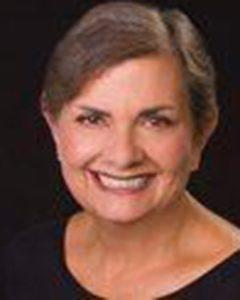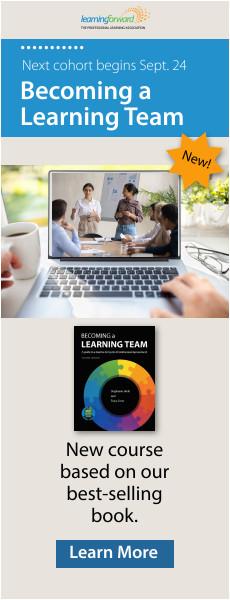Pairing New Science Curriculum With Professional Learning Increases Student Achievement
By Joellen Killion
February 2016
Read the remaining content with membership access. Join or log in below to continue.
Sed ut perspiciatis unde omnis iste natus error sit voluptatem accusantium doloremque laudantium, totam rem aperiam, eaque ipsa quae ab illo inventore veritatis et quasi architecto beatae vitae dicta sunt explicabo. Nemo enim ipsam voluptatem quia voluptas sit aspernatur aut odit aut fugit, sed quia consequuntur magni dolores eos qui ratione voluptatem sequi nesciunt. Neque porro quisquam est, qui dolorem ipsum quia dolor sit amet, consectetur, adipisci velit, sed quia non numquam eius modi tempora incidunt ut labore et dolore magnam aliquam quaerat voluptatem.
At a Glance
Well-designed, educative curriculum and materials, coupled with face-to-face professional development related to the curriculum, lead to more effective implementation of the curriculum, improved teacher practice, and student achievement.
The Study
Taylor, J., Getty, S., Kowalski, S., Wilson, C., Carlson, J., & Van Scotter, P. (2015). An efficacy trial of research-based curriculum materials with curriculum-based professional development. American Educational Research Journal, 52(5), 984-1017.
What This Means for Practitioners
This study focuses specifically on a single science curriculum for high school students. Yet it confirms common practices for which there is limited empirical evidence. Among those practices, as specified in the Outcomes standard, teacher professional learning must align with student outcomes and teaching practices aligned to those outcomes in a coherent and integrated fashion. The professional learning teachers experienced focused on curriculum, curriculum implementation, teaching practices, fidelity of implementation, and increasing student achievement in an integrated fashion.
New programs, such as new curricula, require sufficient professional learning to support implementation. The Implementation standard explains that support must extend over time and provide opportunities for feedback and collaborative support. One goal of the professional development in this study was to build collaboration among teachers for implementation support. The description of the professional development program included no information about how or if it included feedback to teachers and classroom-based support outside the daylong sessions that occurred throughout the school year.
In addition, the Learning Designs standard states that the instructional practices used in professional learning should model and advance the expected pedagogical practices. Providers modeled lessons and applied pedagogical practices that teachers would use in their implementation of the curriculum.
A noteworthy element of the selection of participants was engaging school principals as advocates for teacher participation in the professional learning. This often-missing element of teacher professional learning aligns with the Leadership standard.
Overall, this study clarifies the significance of teacher practice in program implementation and student success. It verifies that teacher practice mediates student achievement and provides confirming evidence that professional learning as a core component of curriculum or program implementation is a worthy investment.

Joellen Killion is a senior advisor to Learning Forward and a sought-after speaker and facilitator who is an expert in linking professional learning and student learning. She has extensive experience in planning, design, implementation, and evaluation of high-quality, standards-based professional learning at the school, system, and state/provincial levels. She is the author of many books including Assessing Impact, Coaching Matters, Taking the Lead, and The Feedback Process. Her latest evaluation articles for The Learning Professional are “7 reasons to evaluate professional learning” and “Is your professional learning working? 8 steps to find out.”
Recent Issues
GLOBAL PERSPECTIVES
June 2024
What does professional learning look like around the world? This issue...
WHERE TECHNOLOGY CAN TAKE US
April 2024
Technology is both a topic and a tool for professional learning. This...
EVALUATING PROFESSIONAL LEARNING
February 2024
How do you know your professional learning is working? This issue digs...
TAKING THE NEXT STEP
December 2023
Professional learning can open up new roles and challenges and help...








